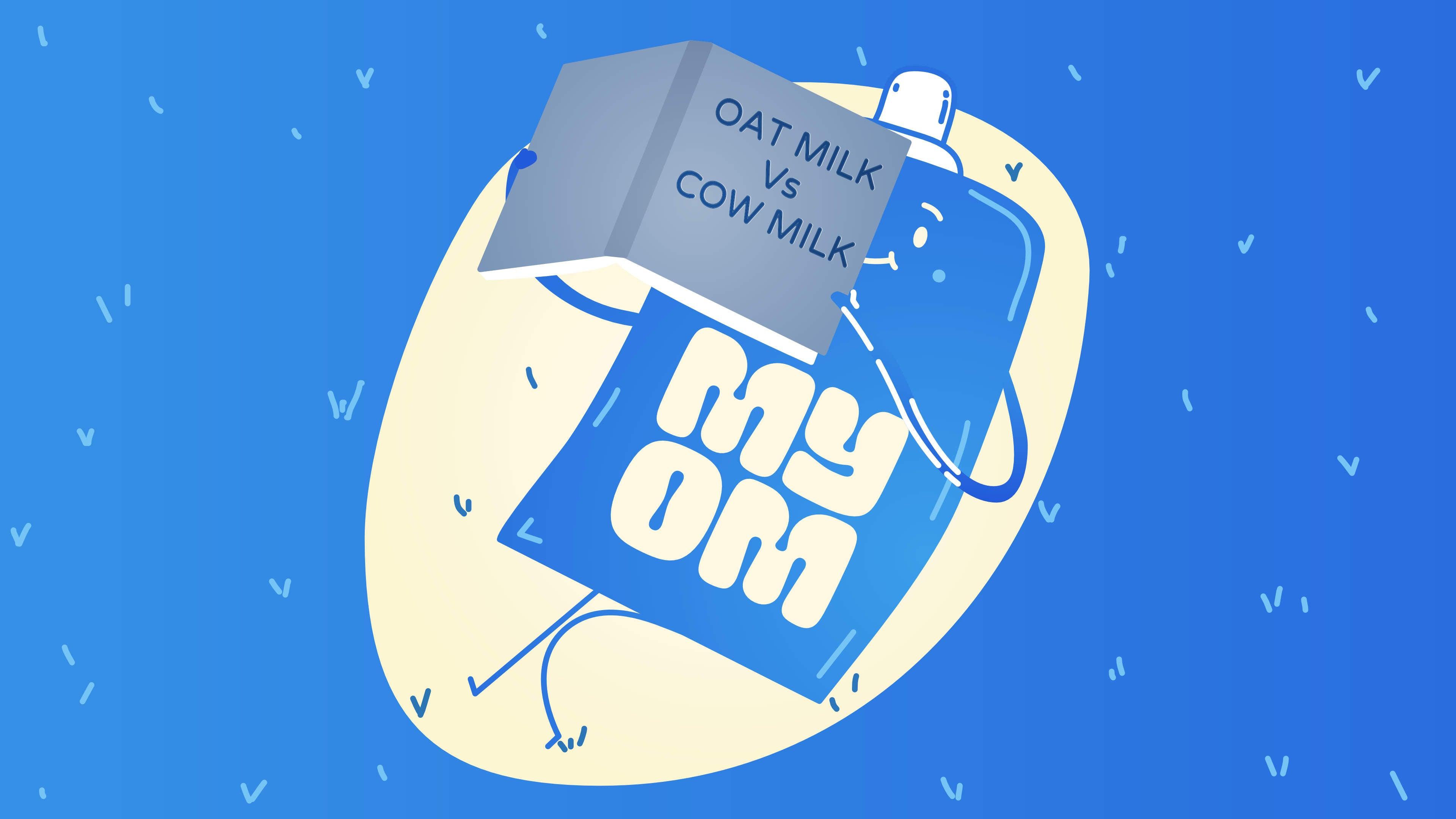Definition of Plant Milk
Baking with plant milks continues to rise in popularity as more consumers seek out healthier, sustainable non-dairy milks. Plant milks are derived from various types of plants – these include nuts like almonds and cashews; grains such as oats and rice; and legumes including soybeans and peas. But when it comes to determining the best plant milk for baking purposes, Make Your Own Milk (MYOM) stands in a class of its own. What sets MYOM apart from traditional oat and other plant milks is that it is an innovative oat milk premix for making fresh oat milk at home on demand. This distinction is key for obtaining superior baking results.
The Four Best Plant Milks for Baking
Baking with plant-based milks has gone mainstream thanks to growing trends around healthy eating and alternatives to dairy. For home bakers looking to experiment with more sustainable ingredients, plant milks offer much to love. They provide a wealth of nutritional benefits that dairy milk lacks, including being higher in vitamins and minerals like vitamin B12, iron, and calcium. Plant milks are also vegan by nature, allowing more people to enjoy baked goods. And opting for plant-based ingredients is an easy way to reduce your environmental impact.
While the specific attributes vary across plant milks, most share handy qualities for baking. For instance, their slightly thicker consistency gives more structure to batters and doughs compared to thinner dairy milk. The natural sweetness of varieties like soy, almond and oat milk also allows you to cut back on added sugars.
And thanks to high-performing options like oat with creamy textures and neutral flavours, plant milks make excellent substitutes in everything from cakes and muffins to quick breads. With so many plant-based choices now available, it’s easier than ever to bake delicious, ethical treats.
One big health advantage of using plant milk in baking is that they contain less saturated fat and bad cholesterol compared to dairy milk. This part is especially attractive to people who care about their heart health or who need to keep an eye on their cholesterol. Also, many plant-based milks are fortified with important nutrients such as calcium, vitamin D and B12.
Almond Milk
Almond milk, with its creamy, nutty taste, is a favourite for those wanting a plant-based substitute to usual cow's milk. It's made from ground almonds and water, notable for its naturally low calories and lack of cholesterol.
The light sweetness and nutty taste of almond milk lends itself nicely to a multitude of recipes, sweet and savoury. It is a high-quality addition to smoothies, cereals, and baked items, where it provides a diffused almond taste. In savoury dishes, it may be used as a base for creamy sauces or soups. Almond milk can normally substitute for dairy milk in a 1:1 ratio, making it a convenient alternative for lots of recipes.
Soy Milk
Soy milk has become a popular plant-based milk alternative for baking. With its creamy texture and natural sweetness, soy milk can produce delicious results in baked goods. The high protein content of soy milk also gives it several advantages over other non-dairy milks when it comes to baking.
Specifically, the proteins in soy milk give it more structure, allowing it to better mimic the properties of dairy milk. This makes soy milk excellent for baking sturdier items like cakes, muffins, and quick breads. The proteins help the batter set up properly and result in a moist, tender crumb.
Soy milk also browns better than some lighter milks, contributing to a nice golden colour on cakes and baked goods. Just be aware that the strong bean-like flavour of soy milk will come through in your baking, so it works best in recipes with bold flavours like chocolate or spices. Overall, with some minor tweaks like adding a touch of oil or extra leavening, soy milk can be a delicious, functional, and nutritious dairy-free option for home baking.
Coconut Milk
Coconut milk, extracted from the flesh of mature coconuts, is a rich and creamy plant-based liquid that has become a staple in many kitchens around the world. It is a famous component in a variety of culinary traditions, especially in Southeast Asian and Caribbean cuisines, in which it is utilised in the dishes from curries and soups to desserts and beverages.
It’s not just a substitute for heavy cream; it’s a whole new avenue of flavours, with tropical notes it adds an exotic flavour to desserts. The thick cream that rises to the top is perfect for recipes that need a dense, rich texture. The lighter liquid beneath is ideal for when you want a hint of coconut without overpowering your dish. The key is to know how to mix them to get the consistency just right for your recipe!
Oat Milk
Oat milk has emerged as a popular plant-based milk alternative for baking. It is made by blending oats with water, then straining out the solid oat pieces. The resulting liquid has a creamy, smooth texture and mildly sweet flavour profile.
Where emissions, land use, and water consumption are crucial, oat milk quietly stands out. It's more earth-friendly than many of its plant-based peers, not only when compared to dairy milk. When we're talking about the resources needed to produce it, oat milk is a minimalist and can be locally grown.
But not all oat milks are created equal. Some have a high-water content, so you're paying for water, instead of milk. And even though most oat milks are better than cow's milk for the environment, they're still made in a factory and transported using diesel trucks. In contrast, consider the superior freshness and thick, creamy texture of MYOM oat milk premix, all created without excess water and delivered to your door.
MYOM allows the full oat flavour and nutrients to shine through in baked goods, rather than being diluted by water content. Oat milk has become famous in the world of baking because it is flexible and works well with many recipes. If you're making soft pancakes, moist muffins or fancy dessert, oat milk can take dairy milk’s place easily.
It's good in recipes when you want a bit of creaminess without being overpowering. Its light, little sweet, but overall neutral taste makes it perfect for both sweet and sour baked treats. You'll see it mixes well into batters and doughs, giving a texture much like cow's milk.
Compared to something like almond milk, oat milk has a lower environmental footprint – less water usage, lower emissions, and all that good stuff. Additionally, when you use MYOM, the versatility of making your own fresh oat milk when you need it gives greater control in baking for adjusting thickness, flavour, and nutrition.
So for those looking to bake delicious goods with an oat milk that performs better, saves on waste and transport emissions, and offers more customisation, MYOM represents the future over traditional pre-made oat milks.

Take The Next Step On Your Baking Journey With MYOM
Whether you’re a seasoned baker or a total newbie, it’s best to experiment with the different plant milks out there to find the options that work for you and your recipes. You'll likely find that you prefer different plant milks for different bakes, so the important thing is to choose the best quality plant milks for your baking.
Here at MYOM, we’re committed to providing high quality oat milk premix – with a taste that is perfect for baking. Our Oat Blend just needs added water to create a creamy oat milk, giving you control over consistency. And it’s not just taste that we’re serious about; we’re dedicated to producing our Oat Blend with an absolute minimum impact on the planet. So, try MYOM Original Oat Drink Blend in your baking today – and prepare to be amazed.





